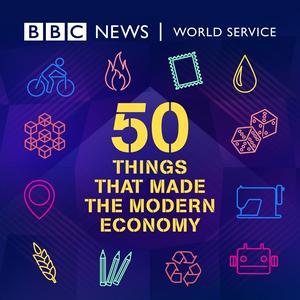110 episoder

Introducing: Season 2 of 30 Animals That Made Us Smarter
22.7.2021 | 18 min.
How animals make us smarter – we thought you might like to hear our brand new episode. It’s about a robotic arm inspired by an elephant’s trunk.For more, search for 30 Animals That Made Us Smarter wherever you get your podcasts.#30Animals

Introducing 13 Minutes to the Moon Season 2
09.3.2020 | 3 min.
Jump on-board a doomed mission to the Moon. Apollo 13: the extraordinary story, told by the people who flew it and saved it. Search for 13 Minutes to the Moon wherever you get your podcasts. #13MinutestotheMoon

Gutenberg press
02.3.2020 | 10 min.
Johannes Gutenberg's printing press changed the course of human history. It created a new way of doing business, drastically reduced the cost and speed of making books, and enabled texts, ideas and arguments to spread further and faster than ever before. So why did he struggle to make money from it?

Slot machines
24.2.2020 | 9 min.
First developed by a toy company in the 1890s, slot machines have become one of the most profitable tools of the gambling trade - but many who play them say winning isn't the point. So why can't people pull themselves away? Tim Harford looks under the spinning wheels and flashing lights to see what these devices reveal about the business of addiction.

Chess algorithms
17.2.2020 | 9 min.
In 1997, Garry Kasparov, widely regarded as the world's greatest chess player, was defeated by Deep Blue, a computer. But how much did that reveal about the 'brainpower' of machines? Tim Harford explains by delving into the history of algorithms. They've been used by mathematicians and scientists for millennia, but have acquired a new level of power and importance in the digital age.
Flere Forretning podcasts
Trendige Forretning podcasts
Om 50 Things That Made the Modern Economy
Lyt til 50 Things That Made the Modern Economy, Vis mig dit CV og mange andre podcasts fra hele verden med radio.dk-appen

Hent den gratis radio.dk-app
- Bogmærke stationer og podcasts
- Stream via Wi-Fi eller Bluetooth
- Understøtter Carplay & Android Auto
- Mange andre app-funktioner
Hent den gratis radio.dk-app
- Bogmærke stationer og podcasts
- Stream via Wi-Fi eller Bluetooth
- Understøtter Carplay & Android Auto
- Mange andre app-funktioner


50 Things That Made the Modern Economy
download appen,
begynd at lytte.